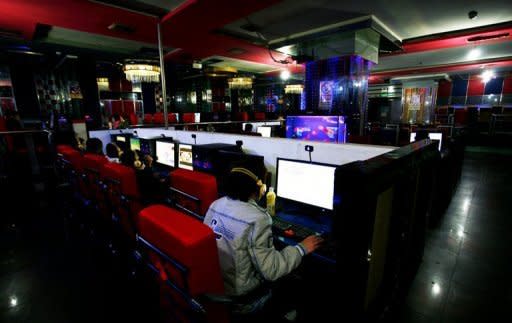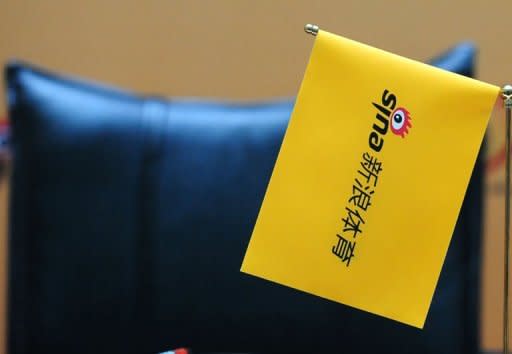China cracks down on Internet after coup rumours
China has shut down websites, made a string of arrests and punished two popular microblogs after rumours of a coup linked to a major scandal that brought down a top politician. Authorities closed 16 websites for spreading rumours of "military vehicles entering Beijing and something wrong going on in Beijing", the official Xinhua news agency said, citing the state Internet information office. Police arrested six people, while the country's two most popular microblogs, run by Sina.com and Tencent, said they would stop users from posting comments to other people's posts until Tuesday. The crackdown follows a surge in unsubstantiated online rumours about a coup led by security chief Zhou Yongkang, following the March dismissal of rising political star Bo Xilai. Analysts say the political drama has exposed divisions in the ruling Communist Party as it prepares for a key leadership transition later this year. Bo, removed as party chief of the southwestern metropolis of Chongqing after his former police chief fled to a US consulate and reportedly demanded political asylum, had been tipped to join the country's top echelons of power. His downfall was only lightly covered by China's tightly controlled state media, opening the way for groundless rumours about a coup to spread on the Internet. In another sign of the state's tight policing of the web -- known as the "Great Firewall" -- Xinhua said 1,065 people had been arrested since February 14 during an operation in Beijing to combat Internet crime. More than 3,000 websites had also received warnings after police targeted the smuggling of firearms, drugs and toxic chemicals, and the sale of human organs and personal information online, Xinhua said. In an editorial, the People's Daily, the mouthpiece of the Communist Party, pledged to punish those responsible for the "lies and speculation". "Online rumours undermine the morale of the public and if out of control, they will seriously disturb the public order and affect social stability," said the newspaper, according to Xinhua. China says it is stepping up efforts to "cleanse" cyberspace, in what many see as a restriction on web freedom in the country, where a vast censorship system blocks sites including Twitter, Facebook and YouTube. The crackdown on the hugely popular microblogs -- China has more than 500 million Internet users -- drew swift condemnation online. "Stopping web users from posting comments on microblogs is a serious attack on freedom of expression and will go down in the history books," said a user called Lawyer 80 on weibo.com. Xinhua reported the website closures late Friday, naming some of the sites involved as meizhou.net, xn528.com and cndy.com.cn, saying they had been shut in accordance with laws for failing to stop the spread of rumours. The six people arrested were held for "fabricating and spreading" rumours "particularly through microblogging posts", said Xinhua, citing the Beijing municipal bureau of public security. Sina.com and Tencent had carried online chatter speculating about a coup and were "criticised and punished accordingly", a spokesman for the state Internet information office said. The spokesman was quoted as saying by Xinhua that both sites had pledged to "strengthen the management". "Rumours and illegal, harmful information spread via microblogs have had a negative social impact and the comments contain a large amount of harmful information," said a message on Tencent's website. "From March 31, 8:00 am to April 3, 8:00 am, weibo's comment function will be temporarily suspended," said Sina, whose weibo service is China's most popular. The huge rise of weibos, or microblogs, has proved a major challenge to the "Great Firewall" and censors had been scrambling in recent days to block all forms of search on the microblogs for terms linked to Bo.



